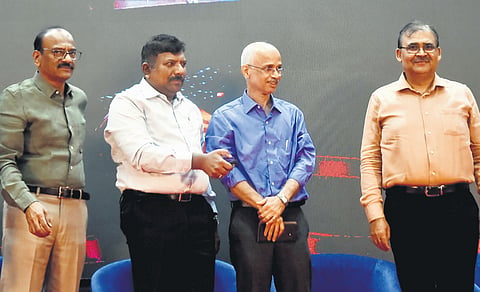

CHENNAI: Tamil Nadu Online Gaming Authority (TNOGA) Chairman Mohammed Nasimuddin on Wednesday said around 20% of students in the state seem to be addicted to online games, according to the preliminary analysis of a survey conducted by the authority.
Speaking at a function to launch an awareness campaign on the ill-effects of online games and gambling, Nasimuddin said the preliminary analysis has shown that online game addiction among students could be much more serious than what was reported in the Justice K Chandru committee that studied the issue.
He said a clearer picture will emerge once the analysis of the data obtained from this survey, conducted to study the intensity of online game addiction among students, is over. “In this survey, direct responses from around 2 lakh students have been enumerated. It was done in collaboration with the school education and higher education departments,” he said.
The TNOGA chairman urged the parents to monitor the behaviour of their children and to have friendly conversations with them to help them come out of the addiction. He said in the coming days, interactions with school and college students about the evils of online games would take place in key towns like Coimbatore, Madurai and Tiruchy.
Chief Secretary N Muruganandam, who launched the campaign, said online games are affecting the students both psychologically and physiologically. He said governments in China and Japan have already banned these online games and Australia is mulling on banning them for children below the age of 16.
Pointing out that the trend of addiction to online games is particularly on the rise in the last five years, he said, “It can be described as internet gaming disorder or pathological gaming disorder. The origin of this disorder can be traced to the Covid-19 period. During that time since schools were closed, the parents were forced to give mobile phones to their children to attend online classes,” the CS added.
Home Secretary Dheeraj Kumar said two years ago, a survey was held by the School Education Department involving 2 lakh teachers on their perception of their students. “I wish to point out just two most important observations made by the teachers during the survey: 67% of them said eye defects among the students have increased due to the rapid engagement in online games, while 74% of the teachers said due to online games, students lacked intelligence, creativity,” he said.
“So, the ill-effects of online games are not knocking at our doors. They have entered our homes. So, we have to take drastic action,” he said.